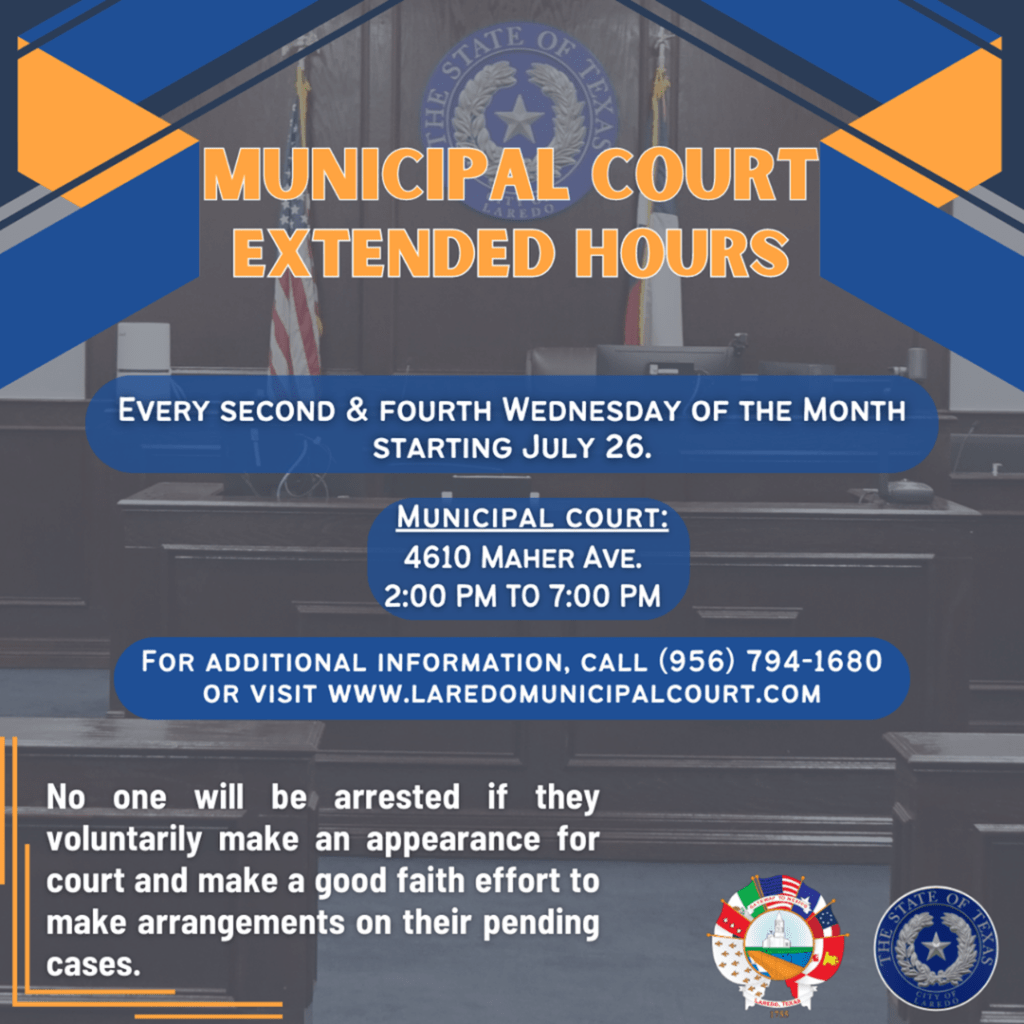The Municipal Court in Laredo, Texas, serves as a critical component of the local judicial system, handling a range of cases from traffic violations to misdemeanor offenses. This court plays a pivotal role in maintaining law and order in the community, ensuring that justice is served promptly and fairly. With its unique blend of legal proceedings and community engagement, the municipal court stands as a testament to Laredo's commitment to upholding the rule of law.
Located in the heart of Laredo, the municipal court is not just a place where legal matters are resolved; it is a hub for community interactions, educational programs, and outreach initiatives. Residents often find themselves at the courthouse for various reasons, whether it's to contest a ticket, attend a hearing, or simply learn about their rights. The court's accessibility and transparency aim to foster a sense of trust among citizens, making it an integral part of civic life in Laredo.
As we delve deeper into the workings of the municipal court in Laredo, Texas, we will explore its jurisdiction, the types of cases it handles, and its significance in the legal framework of the city. Understanding the municipal court's function can empower residents to navigate the legal system more effectively and ensure they are informed participants in their community’s governance.
What Types of Cases Does the Municipal Court in Laredo Handle?
The Municipal Court in Laredo primarily deals with the following types of cases:
- Traffic violations, including speeding tickets and DUI offenses
- Misdemeanor offenses, such as theft or vandalism
- Code enforcement cases related to city ordinances
- Civil matters involving small claims
How is the Municipal Court Structured?
The structure of the Municipal Court in Laredo is designed to effectively manage the caseload while ensuring fair treatment for all parties involved. Key components include:
- The Municipal Judge, who presides over court proceedings
- Court clerks responsible for administrative duties
- Prosecutors representing the city in criminal cases
- Defense attorneys who represent individuals accused of offenses
What is the Role of the Municipal Judge?
The Municipal Judge plays a crucial role in the court system. Their responsibilities include:
- Presiding over court hearings and trials
- Making determinations on motions and evidence
- Issuing rulings and sentences
- Ensuring that court procedures are followed
How Can Residents Access the Municipal Court Services?
Residents can access various services offered by the Municipal Court in Laredo through multiple channels:
- In-person visits to the courthouse for hearings or inquiries
- Online resources for accessing case information and payment options
- Phone consultations for legal inquiries
What Are the Operating Hours of the Laredo Municipal Court?
The operating hours of the Municipal Court in Laredo are typically:
- Monday to Friday: 8:00 AM - 5:00 PM
- Closed on weekends and public holidays
How Does the Court Handle Traffic Violations?
Traffic violations are one of the most common types of cases heard in the Municipal Court. The process generally includes:
- Receiving a citation from law enforcement
- Deciding whether to contest the citation or pay the fine
- Attending a court date if contesting the violation
What Community Programs Does the Municipal Court Offer?
The Municipal Court in Laredo is actively involved in community outreach and education. Programs include:
- Traffic safety seminars aimed at educating drivers
- Legal clinics providing guidance on navigating the court system
- Youth programs designed to prevent delinquency
How Can Residents Get Involved with the Municipal Court?
Community involvement is encouraged at the Municipal Court. Residents can participate by:
- Attending public hearings and court sessions
- Volunteering for community programs
- Providing feedback to improve court services
Conclusion: The Importance of the Municipal Court in Laredo
The Municipal Court in Laredo, Texas, serves as a vital institution in the community, ensuring justice is accessible and equitable for all residents. By understanding its functions, procedures, and community programs, citizens can become more informed participants in their legal system. The court not only addresses legal issues but also fosters a sense of community responsibility and engagement.
Unveiling The Glamour: The Kim Kardashian Diddy Party
Discovering The Enigmatic World Of Per Chance AI Girl
Unveiling The Life And Legacy Of Dan Goldfuss

/cloudfront-us-east-1.images.arcpublishing.com/gray/HFCPUKNIKRP4ZGLI24F2CIPLXE.jpg)
